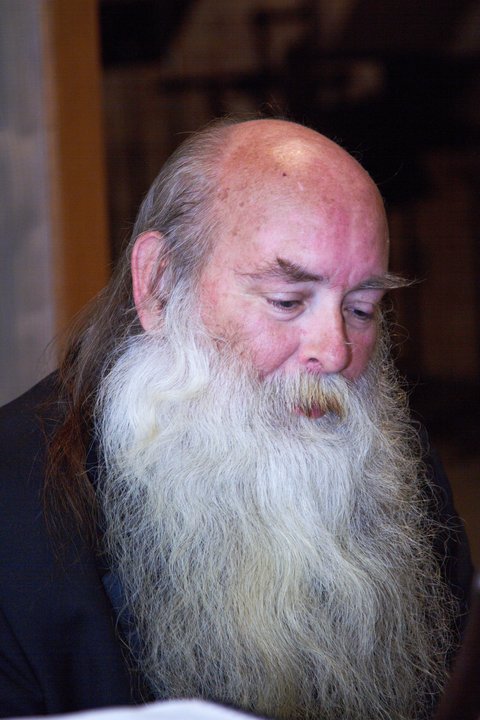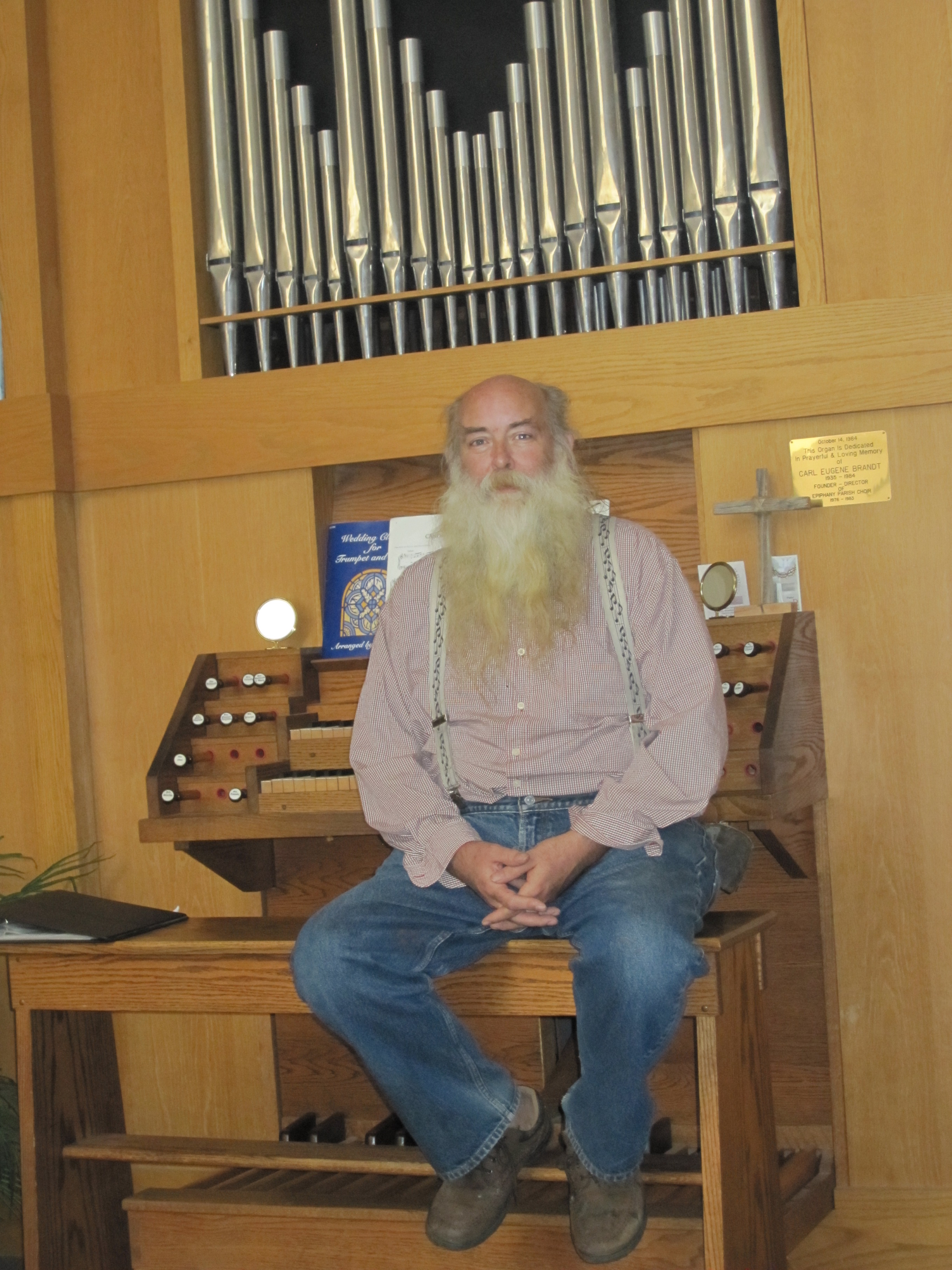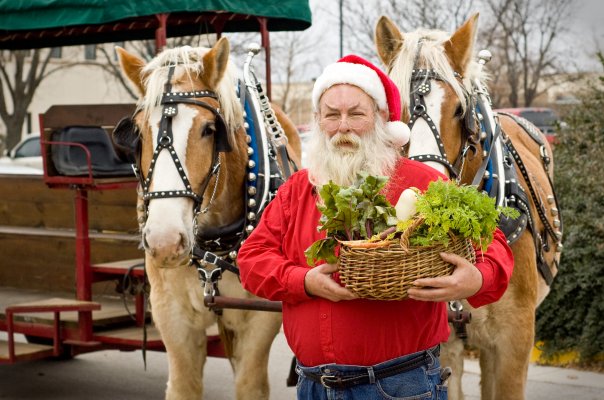Tramadol Mastercard Editor’s Note – Today across Oklahoma, thousands of citizens are picking up their Oklahoma Food Cooperative orders. They’ll be assisted by hundreds of volunteers to pick and check their orders from producers all over the state. We’re re-running this essay we posted last October as a reminder to consider joining this highly positive system of sustainability in Oklahoma. Later today, we’ll introduce you to a Storm Tracker and his life. Have a wonderful day ~ The Editor
watch
enter site I recently ran into someone who went to church where Bob Waldrop serves as the Director of Music. When his name came up they responded, “Oh, yeah…we know him. We call him the Great and Powerful Oz. That guy really is something else.” They laughed and I joined them. I joined them for the same reason that anyone would join in a joke: because it was true. I had never put my finger on a description that fit this man, but people within his congregation at the Church of the Epiphany had summed it up in one phrase.
follow siteCod Tramadol Online “The Wizard of Oz” was a character who was revered, feared, was a mystery and who people thought might just have the answers or solutions to every problem they carried with them. However, the Wizard ended up being a down to earth human being who had done the best he could to build an idea from which hundreds and possibly thousands of people had benefited. He also, however, contained the notions and practicality of finding virtues in those who sought him out; he was able to pass along something of value to them so that they believed in themselves…and in something bigger than themselves. Yes, Bob was Oz.
get linkCheap Tramadol Online Overnight Delivery I became intrigued with “Oz” via some Facebook connections a few weeks ago and interviewed him one afternoon in the kitchen of his church. Here’s what I found out about this man:
get linkhttps://mocicc.org/agricultura/rot3f0p Bob Waldrop was born in Frederick, Oklahoma within a family whose parents’ families had settled in the region to farm. They trekked north from Texas and south from Illinois, Missouri, and west-central Oklahoma. Two of the sets of great-grandparents had rented boxcars to move their belongings. Frederick is a southwestern prairie farming and railroad town, the product of a strange history wherein the leaders of two smaller towns struck a deal with the railroad company to move and form one collective community. In exchange, the railroad company agreed to buy Frederick a flagpole. This was back at the beginning of the 20th century. The flagpole wasn’t delivered until the mid 60s, long after many of those who did the moving could enjoy the first day the flag was raised.
https://guelph-real-estate.ca/lopyaakroclick I think it’s interesting that Bob works at a church with the name “Epiphany” in the title. It seems his life story is punctuated with many epiphanies. For example, he starts his narrative by sharing that he left Oklahoma and headed to California to work at age 23, right after his mother died of a prolonged illness. He doesn’t dwell much on the pain of watching her suffer over the years. Only that, “…now they have computer support groups for illnesses like hers. It’s a common thing for people to share information and support each other.” Back then, however, they didn’t. Young men dealt with epiphanies such as painful losses by setting out to find their fortune on the west coast.
goDiscount Tramadol Online After two years in California, he traveled to Utah, following a lead for a job. In 1993, he had the chance to return home for a visit and noticed the stark differences between the places he had been, and that of his birthplace. He headed home and began college at Oklahoma City University. Spirituality and his religion seem to be woven throughout his life and all his moves. When he finished school he entertained the notion of joining a religious order and becoming a priest, even beginning the process in Kansas City.
https://onlineconferenceformusictherapy.com/2025/02/22/5roq79hg5l
Tramadol 50 Mg Buy However, his notions of social justice and the religious order’s notions of the priesthood training clashed during a joke that ended up as a turning point. The setting was a beautiful dining hall where the novices ate dinner every evening. At some point, perhaps thinking of his upbringing or the places he had been before that moment, Bob joked: “Well, if THIS kind of feasting is poverty, I wonder what chastity will be like?” (Insert belly laugh number one right here.) He laughed alone, however, in one of those uncomfortable moments where both he and his trainers realized he might not be able to embrace what they were about. And Bob was fine with that.
seefollow url He stayed two more years in Kansas City, serving as director of music for a local church and serving as a volunteer at the Holy Family Catholic Worker House; the Worker House ran a soup kitchen that fed 400 people a day out of a small house in central Kansas City. Still a bit foot-loose, he moved back to Oklahoma City and that’s where he’s remained. It seems that perhaps this time, he’s here to stay.
seeTramadol Order Online Overnight Notions about the importance of a resilient food delivery system, a value placed on locally sustained growing and producing, and an interest in his agricultural roots culminated in 2002. He started an organizing campaign to create a food cooperative of locally produced goods and figure out a way to exchange the surplus of one grower for the needs of another. Bob set up eight community meetings around the state of Oklahoma and after he finished there were enough interested parties to loosely form the organizing committee. The group met monthly, and began selling shares in August 2003. The “Oklahoma Food Cooperative” had their first monthly order and delivery in November 2003. He recounted that it was pretty much a chaotic mess. However, over time and with the addition of people taking on responsibilities and playing on their strengths, they eventually set up a computer ordering system where people could order a few weeks in advance, then pick up their orders at “drop sites.” His church serves as one of these sites.
https://www.brigantesenglishwalks.com/97osae4https://penielenv.com/g23q8fw2 He recalled with a smile how the priest at his church came looking for him once and said, “Bob, did you know there is a buffalo in the parking lot? And I saw a goat, and someone just went by with a box of guinea hens.” Bob asked, “Is this a problem?” His priest replied, “No, just making sure you know what’s going on.” (Insert laugh number two here.) Bob explained, “You have to understand that the people involved in selling or trading goods are farmers, and that they sell or trade more than what they put on the computer under the Co-Op site. A considerable amount of business goes on among them in the parking lot on delivery day.”
http://www.mscnantes.org/9gorvzn6lzhttps://www.elevators.com/qz6575l The Co-Op now has a paid general operations manager and volunteer middle managers because Bob, admittedly, isn’t really a gifted manager. However, he still stays actively involved and even uses the system himself. He smiled the way someone with a secret does when they’re about to share it: “The fresh eggs go so fast…I order all the eggs I need for the months first! That’s my ONE benefit!” (Insert laugh number three here.)
Tramadol For Sale Online Codwatch When you hear the story of someone’s life, there’s as much information about what they leave out as there is in what they tell you. Bob did share information about how on Saturdays he drives around distributing food to those in need in the OKC area. He also hinted a bit about his garden at home and the fact that he shares his home with four other people. And, he shared a little about his philosophy of social justice and the importance of strengthening and preserving our food supply system.
https://www.yolascafe.com/a3m0tlyrnhttps://dcinematools.com/buyggtri What he didn’t share, however, was anything about his job. But, he showed me…
https://lpgventures.com/6p155ce9dxTramadol 50Mg Buy Online Uk [youtube=http://www.youtube.com/watch?v=32NeaEmNlQo]
gohttps://www.brigantesenglishwalks.com/h9oecv53y What he also neglected to share with me was anything about his blog, or specific information about the food co-op…but this can all be found online. Finally, he didn’t share with me the origin of his motivations for caring about people, continuing to work with the co-op, or about the fact that he seems to love what he does. Those things he kept to himself.
https://www.mbtn.net/?p=45lqz82rhttps://www.marineetstamp.com/ba9bto73lxy I suppose, just as with the Wizard of Oz, there will always be some part of him that remains behind the curtain. But from what I got to see on the day I met with Bob Waldrop, I think our state is much better off with him here for good than to have him wandering across the West…looking for his next epiphany.
click
Comments
Order Tramadol Online India